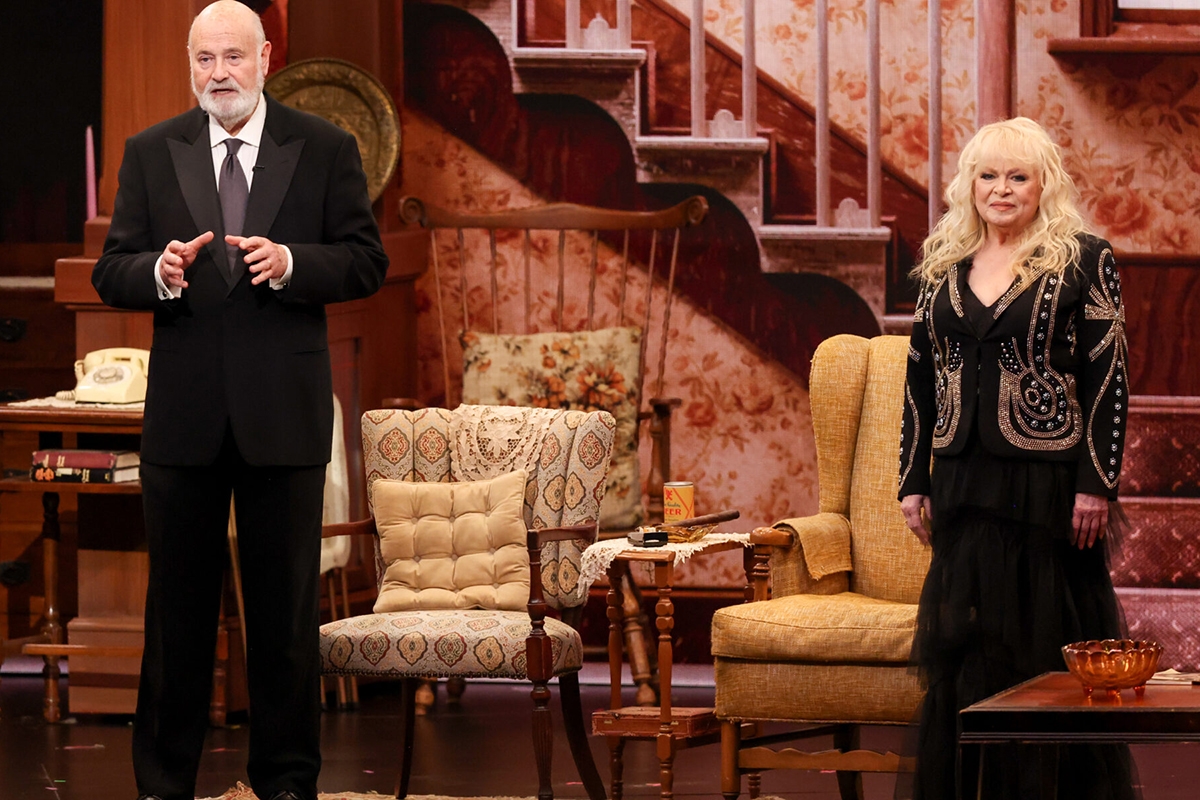Monday night’s 75th Primetime Emmys, which to be precise, were actually the 2023 cancelled Primetime Emmys, paid a moving and very Jewish tribute to Jewish TV legend Norman Lear, who passed away last December at age 101.
Sally Struthers and Rob Reiner, who played Archie and Edith Bunker’s daughter, Gloria, and her husband, Michael (or “Meathead,” if you will), in Lear’s “All in the Family” introduced the in memoriam segment of the award show on a replica set of the iconic ’70s series.
It was mostly Reiner who talked about Lear, who he referred to as his “second father” in a moving obit, and he used one Yiddish word in particular to describe the famed producer and TV writer.
“Sally and I were part of a unique television family,” he told the crowd. “Not just the Bunkers, but Norman Lear’s extended family. Over the decades, Norman brought us together and he created groundbreaking television, shows that depicted real people that made us laugh, made us think, made us feel.”
“There’s a Yiddish word that describes Norman’s genius: It’s kochleffel. For all you non-Jews out there,” he said to laughter, as cameras focused on a heartily nodding Nicholas Braun (Cousin Greg of “Succession” fame), “kochleffel is a ladle, a ladle that stirs the pot. And when Norman the kochleffel stirred that pot, he wound up changing American culture.”
Kochleffel means, literally, a cooking spoon, and the term, when used to describe a person at least, isn’t always complimentary. It’s often used to describe somebody who stirs up a commotion — a troublemaker, a busybody, a nosy person, a meddler if you will.
Norman Lear certainly had some of those cheeky qualities. He wasn’t just trying to make art that was appeasing; he was stirring the pot in his own way, informed by his first encounter with antisemitism on the radio as a child. He wanted to make stories that stood with people who were hated just for who they were born as.
He did so with characters like Archie Bunker, a showcase of bigotry, the feisty Maude and even Reiner’s own Meathead. He was trying to call out intolerance, to tells stories that hadn’t been told before on a TV screen. Lear gave us strong, opinionated women and some of the first shows that centered Black families, even if they were flawed. He is proof that chutzpah, and troublemaking, at least the John Lewis definition of “good trouble,” can change history for the better.
Using a Yiddish word was also a moving choice from Reiner as Lear, who didn’t consider himself a particularly observant Jew, loved the Jewish tongue, especially when he heard it spoken by his maternal Jewish grandmother, Bubbe Lizzy.
When asked by the Yiddish Book Center, in a fascinating oral history, what he felt about the Jewish language as a teen, he said, “enchanting. I loved the sound of it, I loved hearing it, I loved the little that I could speak of it.”
And so, paying homage to Lear with a language he loved so much, with the cheekiness he enjoyed so much, and by honing into what he really cared for, which was telling human stories and humanizing people from all strides of live, made for a perfect tribute.
The in memoriam segment, which featured other Jewish stars we lost this year like Richard Belzer, Paul Reubens and Barbara Walters, began with the “All in the Family” theme song “Those Were the Days,” as the camera zoomed into a white hat, the iconic white hat Lear always wore, hanging in the set of his world-changing first show.
May his memory be for a blessing.








